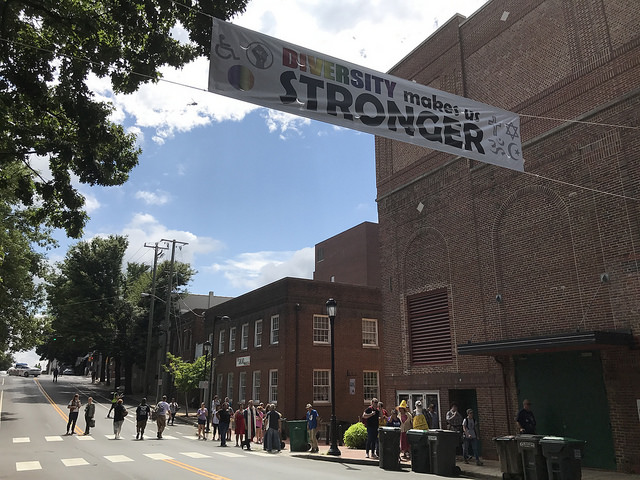As the dynamics of journalism are changing rapidly, more students are wondering where their degree can take them.
A 2017 survey showed only 52.5% of communication graduates in 2014 had short-term employment.
However, there was an increase in 2017 with 85% of graduates receiving full-time positions.
With the news of media cuts at Fairfax and Nine and an impending merge between the companies, some students studying journalism are confronted with an idea that there will be no jobs to enter into once they have graduated, however based on the stats this might not be the case.
Susan Delbasic, author at The New Daily told upstart, “There is a lot of bad news going around for student journalists, [like] no career prospects… but I don’t believe in that… I think that you just have to start outside the box and work your way into the bigger media organisations.”
There are many new opportunities within journalism that offer jobs and careers in the field. Social media and online journalism are becoming an important part of the industry, and from there, new roles and avenues are opening up.
Entering into the ‘new age’ of journalism means recognising prominent changes to our media scape, with more demanding immediacy of news, and the need to have constant rolling coverage of the day’s events.
Technology has become the frontrunner for publishing and sourcing news and it is often where journalists find their stories, using social media over relying on contacts for an instant story.
Tara Watson, Multimedia Producer at Junkee Media told upstart that “people are expecting to the minute news, whereas print has [that] delay.”
Online journalism has become a necessity for news outlets to explore stories and reach a wider audience.
Journalism has progressed to include many different forms of news reporting as society no longer relies on just print media to get their news.
Cut backs to print media like the news of Cosmopolitan magazine being another one to stop printing, has seen many people look online for both their entertainment and hard style news.
Paul Donoghue, Digital Journalist at the ABC, told upstart, “I don’t think any news organisation would consider traditional and [not] consider their digital journalism…To consider Buzzfeed a poor provider of journalism is kinda like saying the Kardashians aren’t good business people, it’s an old fashioned view.”
Today journalists are no longer just writers, they are cameramen, editors and photographers as well which is why many are trained and qualified to cover as many aspects of the field as possible.
Donghue suggested when looking to up-skill, to look into The Walkely Foundation which runs courses for journalism.
Meg Kennedy, reporter at Moorabool News told upstart that looking locally to places like Syn for free radio training and workshops. She says that variety of training would be beneficial for a young journalist.
A barrier to aspiring journalists can be getting interviews. They can prove to be a challenge for students as they are often turned away because they aren’t writing a story that would offer the talent anything in return.
The view that student journalists don’t offer anything to an interviewee can often stall an article as no one is willing to speak assuming they wouldn’t get something out of it.
Tara Watson, Junkee Multimedia Producer, suggested hinting at the potential for the article to go onto upstart.
“People don’t really want to help out if there is no potential for it to even be a story if it’s just for an assignment they might not want to help out,” she says.
Managing a professional and personal profile can be difficult, and the main advice for aspiring journalists is to not respond to “trolls”.
Ryan Tennison, reporter at the Herald Sun told upstart “if you are accurate, if you are right, you have done nothing wrong. As long as you have given everyone a chance to speak, if they’re not happy with your story that’s a, them problem, not a you problem.”
If there is one thing journalists should take from the advice given by these professionals is, there is always avenues of opportunity within journalism as long as you are motivated and dedicated to succeed.
Marisa Sopcic is a third year Bachelor of Media and Communications (Journalism) student at La Trobe University. You can follow her on Twitter @marisa__kate.
Photo: ‘Keyboard Button’ by niekverlaan available here and used under a Creative Commons Attribution.







